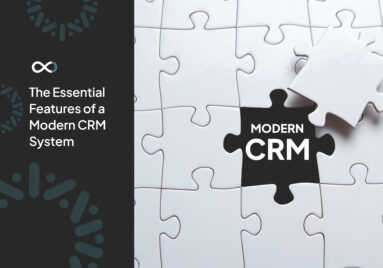In today’s fast-paced business environment, managing customer relationships is more critical than ever. Enter CRM systems, the cornerstone of modern customer relationship management. But what exactly are CRM systems, and how do they shape business practices? In this comprehensive guide, we will delve into the essence of CRM systems, uncover their practices, and provide insight on choosing the right CRM for your business. Prepare to be amazed as we unveil insights that might just transform your understanding of CRM.
Table of Contents
What is CRM Systems and Practices?
CRM systems are software solutions designed to streamline and enhance the way businesses manage their interactions with customers. They collect and organize customer data, making it accessible to sales, marketing, and customer service teams. This data-centric approach helps businesses personalize interactions, anticipate customer needs, and ultimately improve customer satisfaction and loyalty.
The practices surrounding CRM systems involve not only using the technology but also developing strategies to leverage the data effectively. This includes segmenting customers, automating marketing campaigns, tracking sales performance, and providing exceptional customer support.
The Hidden Benefits of CRM Systems
You might think that CRM systems are just about storing customer data, but their benefits extend far beyond mere data management.
CRM Systems Can Improve Employee Morale
It might sound surprising, but CRM systems can significantly boost employee morale. By automating repetitive tasks and providing easy access to customer information, CRM systems free up employees’ time to focus on more engaging and strategic activities. This can lead to high job satisfaction.
Data Quality Over Quantity
Businesses often believe that more data is better. However, CRM systems emphasize the importance of data quality over quantity. A CRM system helps in filtering and organizing data, ensuring that only relevant and accurate information is used to make decisions. This precision can lead to more effective marketing and sales strategies.
CRM Systems Can Foster Collaboration
Traditionally, the CRM systems have been perceived primarily as tools for sales teams. However, they can enhance collaboration across departments. For instance, customer service teams can use CRM data to provide more personalized support, while marketing teams can use insights from CRM to tailor their campaigns. This holistic approach fosters a more integrated and cooperative work environment.
3 Common CRM Myths
There are several myths about CRM systems that can mislead businesses into making poor decisions. Let’s debunk these myths with a counter-narrative approach:
CRM Systems Are Only for Large Businesses
Many small and medium-sized businesses shy from CRM systems and believe that they are only suited for large enterprises. In reality, CRM systems are versatile and can be scaled to suit businesses of all sizes. Modern CRM solutions offer flexible pricing and features tailored to the needs of smaller businesses, making them a viable option for SMBs as well.
CRM Systems Are Too Complex to Implement
The idea that CRM systems are complex and difficult to implement is another common misconception. While early CRM systems might have been complicated, today’s CRM solutions are designed with user-friendliness in mind. Many providers offer intuitive interfaces and comprehensive support to ensure a smooth implementation process.
CRM Systems Are Only About Sales
While CRM systems are crucial for sales teams, their benefits extend far beyond sales. They play a significant role in marketing, customer service, and even product development. By providing a comprehensive view of customer interactions, CRM systems enable businesses to make informed decisions across various departments.
Choose the Right CRM
Choosing the right CRM system is not just about selecting a tool but finding a solution that aligns with your business goals and practices. Here are some elegant articulations to guide you through the selection process:
Align with Business Goals
The right CRM system should align with your business objectives. Consider what you want to achieve with CRM—whether it’s improving sales performance, enhancing customer service, or streamlining marketing efforts. Choose a CRM that supports these goals and offers the features you need to succeed.
User Experience Matters
A CRM system should be intuitive and user-friendly. The effectiveness of a CRM system depends on how easily your team can adopt and use it. Look for a CRM with a clean interface, straightforward navigation, and ample support resources to ensure a smooth user experience.
Integration Capabilities
Integration is key to maximizing the value of your CRM system. Ensure that the CRM you choose can integrate with other tools and systems you use, such as email platforms, marketing automation tools, and accounting software. This will enable seamless data flow and enhance overall efficiency.
Scalability
As your business grows, your CRM needs will evolve. Choose a CRM system that can scale with your business, offering additional features and capabilities as required. A scalable CRM ensures that you can continue to leverage its benefits as your business expands.
Cost Considerations
While cost is an important factor, it should not be the sole criterion for choosing a CRM system. Consider the total cost of ownership, including implementation, training, and ongoing maintenance. A more expensive CRM system might offer better features and support, making it a worthwhile investment in the long run.
Conclusion
In conclusion, CRM systems are more than just data management tools; they are powerful solutions that can transform how businesses interact with their customers. By understanding what CRM systems and practices entail, debunking myths, and considering counter-intuitive insights, you can make an informed decision about which CRM system is right for your business.
Choosing the right CRM requires careful consideration of your business goals, user experience, integration needs, scalability, and cost. Addressing common pain points and leveraging elegant articulations can further guide you in selecting a CRM that empowers your business to thrive.
Are you grappling with the challenge of choosing the right CRM system for your business? Let the experts at Infinity Tech streamline the process for you. With our deep expertise in CRM systems and practices, we are uniquely positioned to help you select and implement a CRM solution that perfectly aligns with your business needs.



